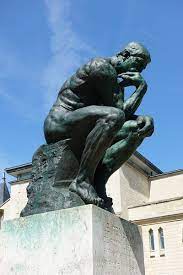
Margaret Atwood is better known as a novelist (chiefly for The Handmaid’s Tale) but she’s no slouch when it comes to poetry.
In the poem, “The Small Cabin,” she does one of those “Speak, Memory” poems, and the word “small” is oh, so important when it comes to memory. Anyone who has returned to their childhood house, neighborhood, or school knows that. What loomed large in childhood is now laughably small (if you dare revisit the place, that is).
Watch how Atwood expertly takes this memory trick and parlays it into something larger at the end. Have I mentioned before how important “turns” and “endings” are in poetry? Oh, yeah. A few times, maybe.
Important. And devilish to pull off with aplomb. So when we see it, we admire it. And try to emulate it.
The Small Cabin
Margaret Atwood
The house we built gradually
from the ground up when we were young
(three rooms, the walls
raw trees) burned down
last year they said
I didn’t see it, and so
the house is still there in me
among branches as always I stand
inside it looking out
at the rain moving across the lake
but when I go back
to the empty place in the forest
the house will blaze and crumple
suddenly in my mind
collapsing like a cardboard carton
thrown on a bonfire, summers
crackling, my earlier
selves outlined in flame.
Left in my head will be
the blackened earth: the truth.
Where did the house go?
Where do the words go
when we have said them?
